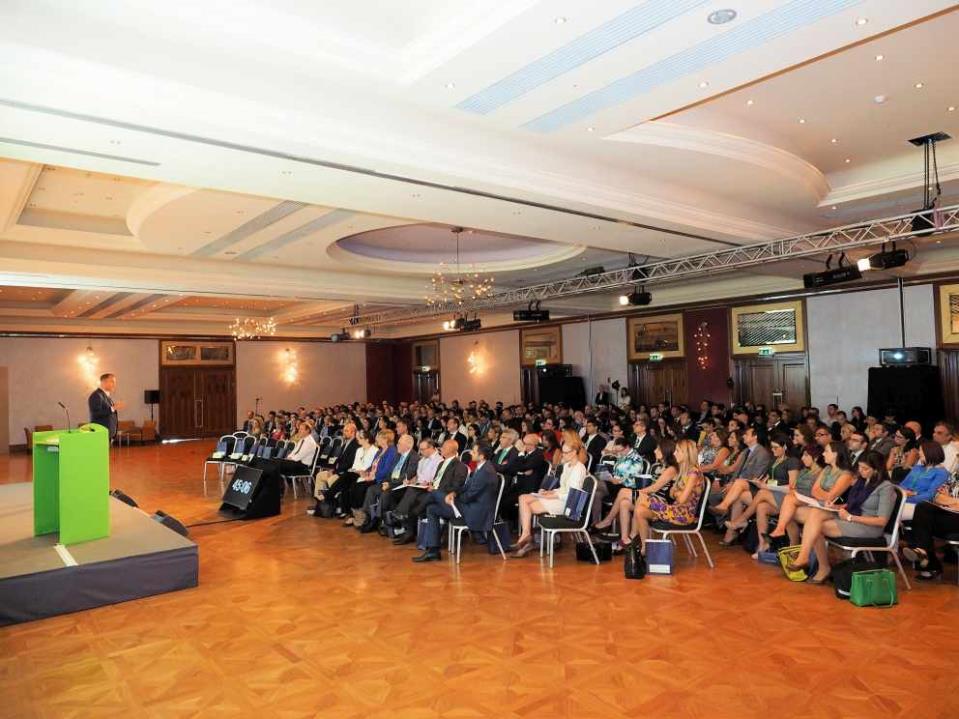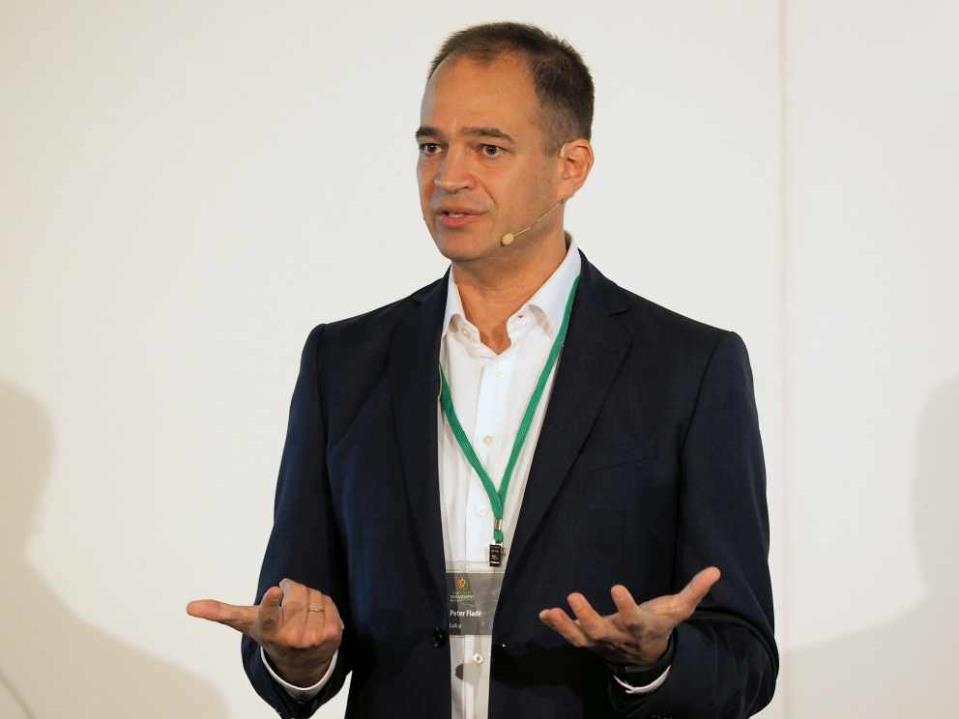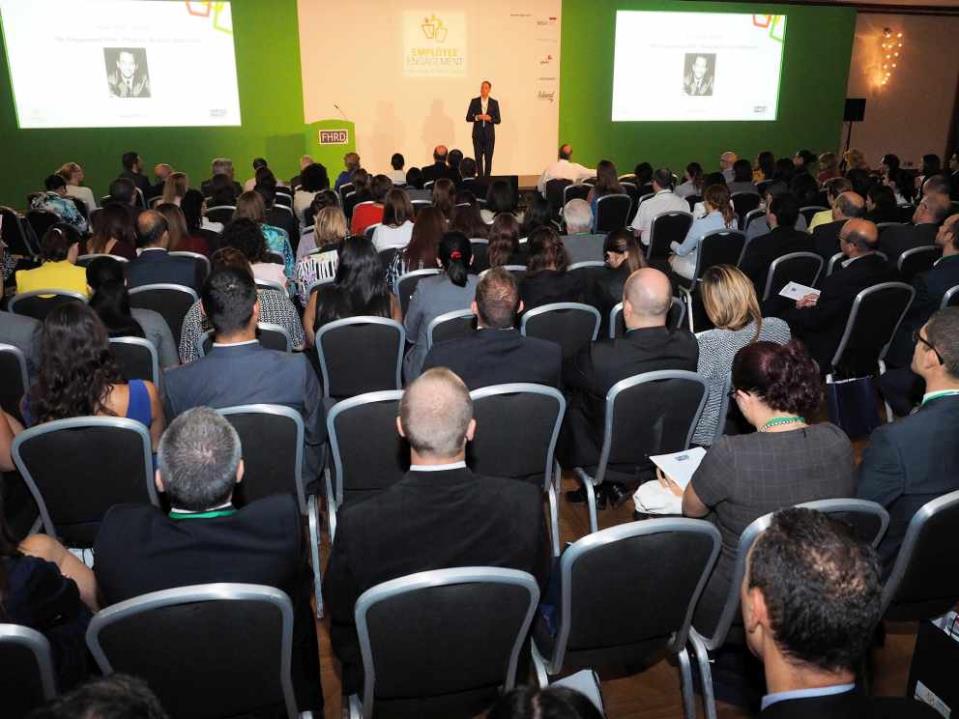Duncan Barry interviews PETER FLADE – managing partner at research consultancy firm Gallup – who was in Malta to address a conference on HR matters on Friday. Present for the conference were a number of human resources teams representing various companies. Mr Flade says companies that fail to ensure their workers are engaged at work is a recipe for disaster while also highlighting positive aspects of what will make employees thrive leading to productivity. He also explains that HR people should think hard before they appoint a person to a managerial post since the likelihood is that once a manager is appointed but then turns out that h/she hasn’t the right skills for the job, HR would procrastinate to remove him/her, which would cause more harm than good to both the manager and the other employees.
Peter Flade, managing partner at research consultancy Gallup, said that bad managers can contribute to high stress levels of workers.
America-based Gallup provides data-driven news based on US and world polls, daily tracking and public opinion research. Mr Flade oversees the European region and works closely with client leadership teams to improve organic growth and productivity through a better understanding of employee and customer needs.

“If HR managers see that company section managers appointed by them cannot get any better, they should spare them from ‘tragic management’ and should have them replaced,” he said. “We should not procrastinate to remove a bad manager since it will have negative ramifications. We don’t always think of these consequences. If we do realise that a manager has potential then do give him/her a chance.”
Mr Flade also quoted a study of 6,000 Finish civil servants, which found that employees are 30 per cent more likely to suffer a heart attack if they are working for a bad boss. On the other hand, having a good manager will make one accomplish any task given, leading to “better productivity and less stress”.
Interviewed by The Malta Independent on Sunday after he addressed the Foundation for Human Resources Development annual conference on Friday, which saw a record attendance, Mr Flade said that even if one were to speak to employees anecdotally, you would hear them say that it frustrates them to see that their employer is not giving them recognition or the required support. This scenario, he added, makes it highly stressful for employees.

“When things are bad at work, it makes you lose your mind and you get anxious. You end up behaving inappropriately because of work-related issues,” he said.
“Who your manager is, is more important for your health then who your doctor is.
“HR people should think hard before they appoint a manager, because if they don’t and the manager turns out to be unfit for the job, this will have repercussions on both him and his workers. Besides, it is likely HR will take long to act once the manager is appointed.
“If HR is strong, it can help by coaching managers responsible for engaging their workers in a way that works. It is not HR’s role to oversee the workers; that is the leaders and managers’ job,” he stressed.
Asked what his message is to companies that do not have an HR department in place, he said this issue is typically about a company’s size.

“There’s something so lovely about small companies in that everyone knows everybody else. You can do without an HR team as long as someone in the leadership team understands and knows what to do and does it well,” he explained.
What could happen in family-owned companies however is that if the boss thinks differently to the rest, this may pose a problem since it is hard to get away from such a scenario.
Questioned whether he feels workers are being pushed to the limit today, he said people can be pushed but only if employers adopt the right formula. If workers are involved, they will waste less time and they will probably work less and not end up doing double the work.
“Overwork comes as a result of inefficiency brought about by the employer. This can easily be solved if employers do things right,” he said.
Mr Flade further explained that the best HR people have a gift for influencing, teaching, and holding executives accountable.

“This is vital because many executives rise through the ranks despite not being very good managers. Good HR people teach leaders and managers to stretch and develop employees in accordance with their natural capabilities. But the role of a manager should be that employees are engaged at work,” he said.
Employees who know what is expected of them, are backed by their managers, have what it takes to do their jobs and are fit for their role, will accomplish any task they are given, leading to productivity. On the other hand, if such basic needs are not met, employees will simply not connect.
Employee engagement is about addressing consistent human needs since many go to work every day but are not quite sure what their role is. Basic fulfilment that an employee can contribute to the company he/she works for and be part of something important are some of the basic needs of an employee, he further explained.
Workers who are actively disengaged outnumber their engaged colleagues by an overwhelming factor of 2:1. But according to Mr Flade, the good news is that there are companies out there bucking the trend, and Gallup has discovered how this is being done.

“Over a five-year timeframe, we studied 500 exemplary companies (collectively employing 1.2 million people) across a number of industries including hospitality, banking, manufacturing, and hospitals.
“At these companies, the engaged workers outnumber the actively disengaged ones by a 9:1 ratio. To understand what drives that tremendous advantage, we looked for contrasts between them and a much larger set of companies we know to be struggling to turn around bland and uninspiring workplaces.
“We found seven elements in place at the companies with spirited employees which were notably lacking in the others.
“Are all of the seven causes of high performance? At least some of them doubtlessly involve virtuous circles. But as a recipe for an engaged workforce, these are ingredients we feel confident in recommending: Have involved and curious leaders who want to improve, have cracking HR, ensure the basic engagement requirements are met before expecting an inspiring mission to matter, never use a downturn as an excuse, trust, hold accountable, and relentlessly support their managers and teams, have a straightforward and decisive approach to performance management, and do not pursue engagement for its own sake.”
Ladder of life
Workers are considered to be thriving at the workplace, in their personal lives and in terms of future prospects if they score themselves a seven or more out of 10. On the other hand, if one rates himself a four or lower, he or she is suffering, Mr Flade said.
The Malta Independent was one of the partners of the FHRD 2015 annual conference.